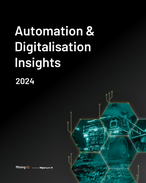This article is 10 years old. Images might not display.
The funding will be provided by the BHP Billiton Foundation over five years with the aim of influencing the perceptions of maths among girls and young women to address a decline in Australians studying maths and entering science, technology, engineering and maths courses.
Core components of the Choose Maths program include professional development for teachers in 120 schools and additional resources for schools across the country, a national women in mathematics careers awareness campaign, scholarships and networking support for women in maths, and an awards program to recognise excellence in teaching and learning.
BHP CEO Andrew Mackenzie said STEM professionals were vital to Australia’s future prosperity, natural productivity and competitiveness.
“For the resources industry this is particularly true,” he said.
“BHP Billiton employs 123,000 people worldwide, many of them STEM professionals, so we share the responsibility to make sure there is a pipeline of young people who choose to study STEM subjects.
“Any increase in STEM participation is good news but an increase in female representation is especially valuable because of the undeniable benefits of diversity.”
AMSI director Professor Geoff Prince said the Choose Maths program would draw on research-based plans to create a pipeline of female talent and help address the gender wage gap.
“The low participation of girls and women in the study of mathematical sciences and in quantitative professions is a significant national social and economic challenge,” Prince said.
He said the five-year program aimed to build self-sustaining educational communities where girls and young women shared equally in the careers and life experiences maths had to offer.
BHP Billiton finance senior manager Fiona Avery said she chose maths at school thanks to the support and encouragement of teachers.
Not surprisingly, she supports any efforts made to promote maths to girls and young women.
“In the past assumptions have been made that boys are better at things like maths, when actually it has been shown that if people believe in you, give you confidence and tell you that you can do it, you are more likely to succeed,” Avery said.
“If you’re not given that opportunity, you never get the chance to prove it.
“So anything that just gives you that nudge will surely encourage more girls and give them the confidence to choose these subjects.”
BHP’s Choose Maths program comes as a new report by the office of Australia’s chief scientist Ian Chubb highlights employers’ growing consideration and need for a STEM skilled workforce.
The report, titled ‘STEM skills in the workforce: what do employers want?’ was compiled by Deloitte on the back of a survey of 1065 employers in various industries, with an overwhelming majority agreeing that people with STEM qualifications are valuable to their business, regardless of that employee’ position.
This was particularly true of the mining industry, where 84% of respondents from that sector agreed with that statement.
The paper includes a number of other important findings, including:
More than 70% of employers considered their STEM staff as among their most innovative;
45% of employers expect their workplace requirements for STEM-qualified employees will increase over the next five to ten years;
40% of employers report difficulty in filling technician and trade worker roles. The figure was 32% for professionals and managers; and
Employers value long-term work placements to assist graduates to prepare for the workforce but only 28 per cent currently offer this opportunity.
In addition, STEM qualified employees rated higher than others in regard to important capabilities such as active learning, critical thinking and complex and creative problem-solving.
Australian Industry Group CEO Innes Willox welcomed the paper as hopefully a catalyst to more students and graduates entering STEM courses.
“The significant work on STEM skills being undertaken by the office of the Chief Scientist is of great value to our economy and importantly business also clearly needs to work more closely with education providers to support the growth of STEM skills in our workforce,” he said.
“A major finding which should resonate with prospective graduates was that 82% of employers agreed that employees with STEM qualifications are valuable to the workplace, even when their major area of study is not a prerequisite for the role.”
The paper is available at their website at www.chiefscientist.gov.au
























